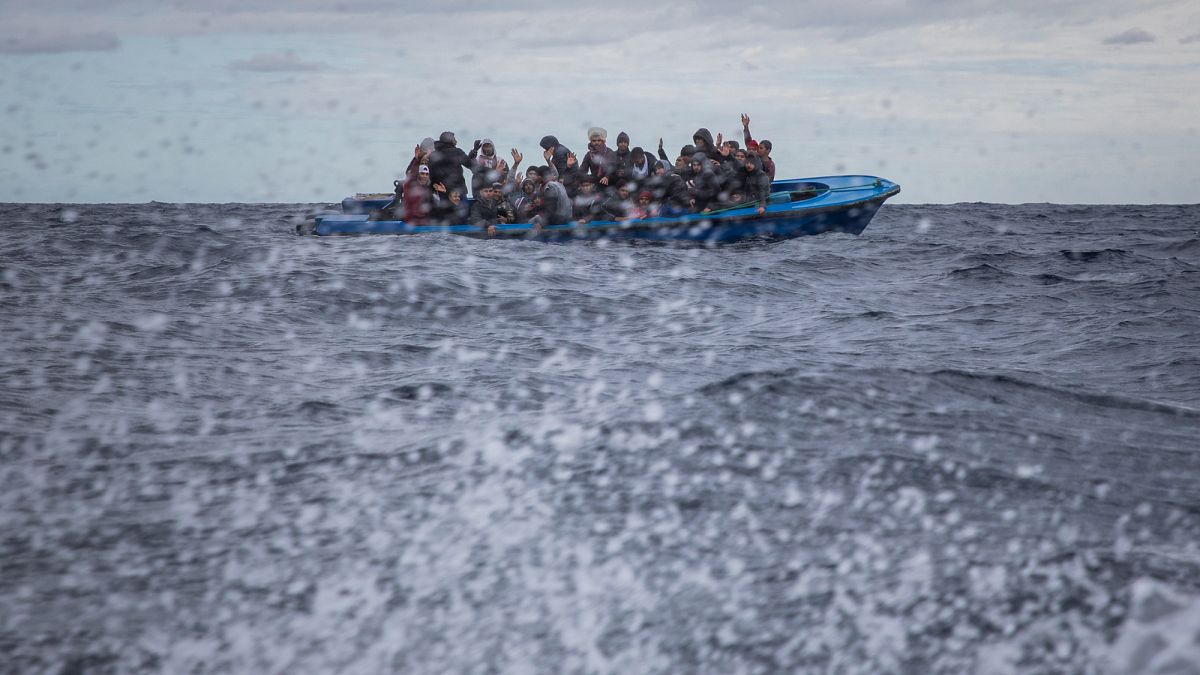
Published on
•Updated
ADVERTISEMENT
The European Commission has dismissed a call from 42 civil society organisations for it to stop financing the so-called Libyan Coast Guards whose agents are deployed on the country’s coast to prevent migrants’ boats from setting sail.
Some 42 European civil society organizations have written an open letter to EU Commissioners for Home Affairs Magnus Brunner, and for the Mediterranean, Dubravka Šuica, asking for the executive to stop the funding.
The letter argues that EU funding has “enabled and legitimised abuses”, pointing out that the Commission has been found guilty of maladministration by the EU Ombudsman for having refused to disclose assessments of its Libya projects.
Signatories claim a long record of incidents of violence during interceptions carried out by the Libyan Coast Guard against boats in distress, and accuse Libyan officials of overseeing a “culture of impunity for violence.”
The organisations that signed the letter include SOS Méditerranée, a network of humanitarian associations whose rescue ship Ocean Viking was attacked in international waters last August by a boat probably transferred to Libya by Italy under an EU-funded program. Amnesty International, Emergency, Médecins Sans Frontières, and ActionAid International are also among the signatories.
The letter asks the European Commission to suspend cooperation with Libya in the field of search and rescue. The Commission should instead finance and coordinate a state-led European search and rescue program in the Central Mediterranean, the letter suggests, to support states in opening safe routes for migrants to escape Libya.
The European Commission has received the letter, but doubled down on its commitment to remain engaged with Libya, according to the Commission’s spokesperson Guillaume Mercier. “This is what we have been doing and we keep on doing at different level, and this is our policy for now”, Mercier said during a press briefing.
The EU has financed Libya in the area of migration mainly through the Emergency Trust Fund for Africa (EUTF for Africa), launched in November 2015 and providing a total of €465 million until 2021.
Assistance to the country continues under another program – the NDICI– Global Europe instrument – for the period 2021-2027, allocating a total of €65 million with a focus on protection and border management, although it is not clear how much of this money is effectively channeled to the so-called Libyan Coast Guard.
Libya is not considered a “place of Safety” for disembarkment of people rescued at sea, according to the current position of the UN, due to its situation of insecurity, violence, human rights abuses, and vulnerable conditions for migrant people.
